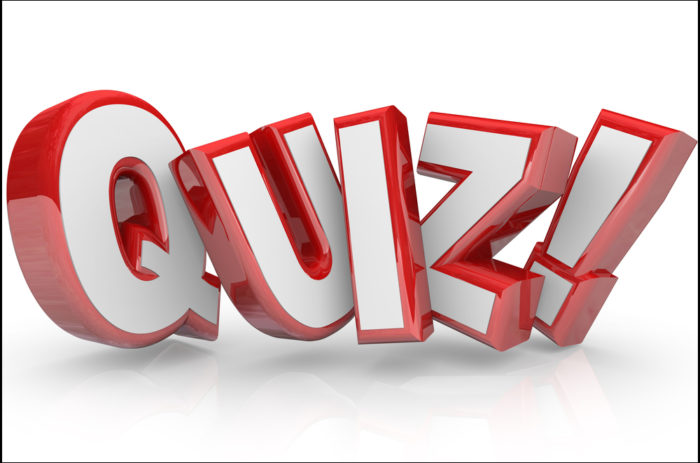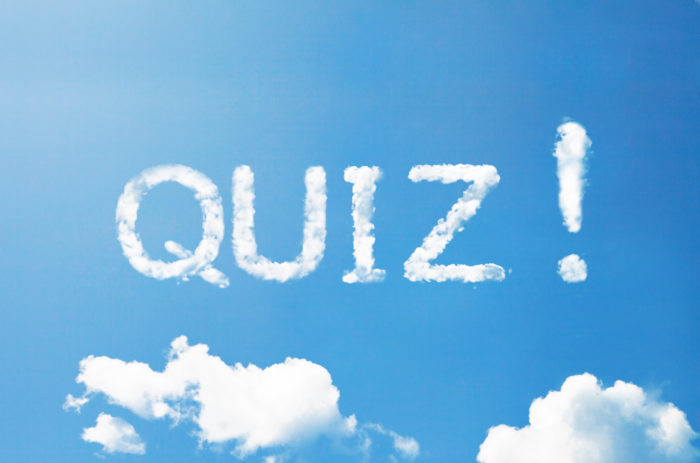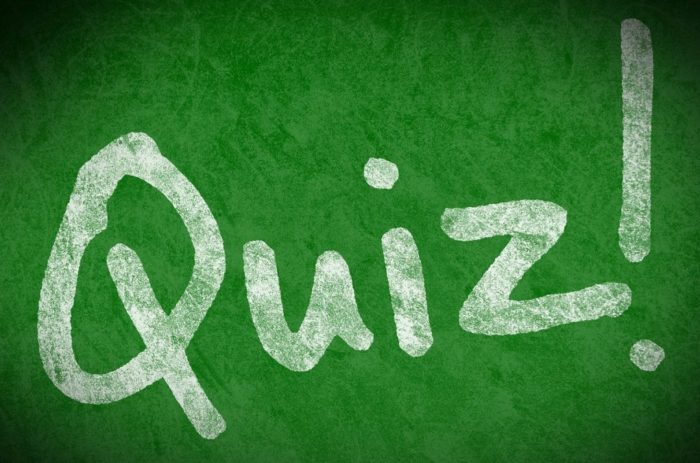Questions
1. Four planes were hijacked by terrorists on 9/11. Nearly 3,000 people died in the 9/11 attacks, including the 246 civilians and 19 hijackers aboard the four planes. Those terrorists were part of the Islamic extremist group ______________.
a) al Shabaab
b) al Qaeda
c) Islamic State
d) Hezbollah
2. The terrorists were targeting the World Trade Center, the Pentagon and most likely the White House or the U.S. Capitol Building. Two of the planes, American Airlines Flight 11 and United Airlines Flight 175, were crashed into the North and South towers of the World Trade Center in NYC. A third plane, American Airlines Flight 77, was crashed into the Pentagon. The fourth plane, United Airlines Flight 93, initially was steered toward Washington, D.C., but crashed into a field near _______________ after its passengers tried to overcome the hijackers.
a) Detroit, Michigan
b) Baltimore, Maryland
c) Boston, Massachusetts
d) Shanksville, Pennsylvania
3. In the aftermath of Hurricane Irma, state officials and local electric utilities announced that approximately _______________ homes and businesses, mostly in Florida, had lost power.
a) 1 million
b) 70 million
c) 3 million
d) 7 million
4. Florida Power and Light explained the company’s procedure for restoring power in the aftermath of a storm. They take all but which one into account?
a) The company repairs the main source of power first (the plants and the power lines that carry electricity to the local substations)
b) they restore power based on when customers report an outage following the motto “first come, first served”
c) they work to return service to the largest number of customers in the shortest amount of time – including service to major thoroughfares that host supermarkets, pharmacies, gas stations and other needed community services.
d) They prioritize restoring power to critical facilities, such as hospitals, police and fire stations, communication facilities, water treatment plants, transportation providers and shelters.
5. Hurricane Katrina caused flood damage to about 600,000 vehicles in 2005. The number of flood-damaged cars from Hurricane Harvey is expected to be greater for two reasons: Harvey had a much bigger footprint and:
a) more people in Houston drive to work
b) people were surprised by the extent of the flooding
c) since Katrina hit 12 years ago, more vehicles rely on computer technology and electronics
d) many residents own cars that are considered “low-riders” which flood easily
6. Many flood damaged vehicles are labeled as such. Some people who did not have auto insurance try to sell their vehicle without telling the buyer it has been in a flood. Steps a buyer can take to ensure the used car they wish to purchase has not sustained flood damage include all but:
a) have your own mechanic check it out, go for a test drive, inspect it for signs of water damage or mildew smell
b) ask the seller if his vehicle has ever been in a flood
c) purchase a used vehicle from a reputable dealer – not off Craigslist
d) question a price that’s too good to be true; it usually means the car is not what it seems
7. Last week, _______________’s Board of Elections voted to eliminate the state’s remaining touch-screen electronic voting machines by the November elections. The board made the decision following a security convention where hackers demonstrated vulnerabilities in touch-screen voting machines.
a) New Hampshire
b) New Jersey
c) Pennsylvania
d) Virginia
8. According to the group Verified Voting, _______________ of U.S. voters still vote on electronic machines with no paper backups.
a) 2-5%
b) 20-25%
c) 99%
d) none after Virginia switches
9. At a meeting last week, _______________ criticized the American Red Cross, saying the organization was the “most inept, unorganized organization I’ve ever experienced.” He noted that it has been local government that has done all of the heavy lifting at the shelters and that has provided most of the resources — “yet every time I turn on the TV, I see [the Red Cross] taking in millions of dollars in donations.”
a) a Hurricane Harvey flood victim
b) the CEO of the Salvation Army
c) a Houston city councilman
d) a Red Cross executive
10. When NPR asked Red Cross executive Brad Kieserman about what percentage of the money people donate for Hurricane Harvey relief will actually end up helping the flood victims, Kieserman replied:
a) “I don’t know”
b) “Wouldn’t you like to know”
c) “I don’t care”
d) “What difference does it make?”
Daily “Answers” emails are provided for Daily News Articles, Tuesday’s World Events and Friday’s News Quiz.



